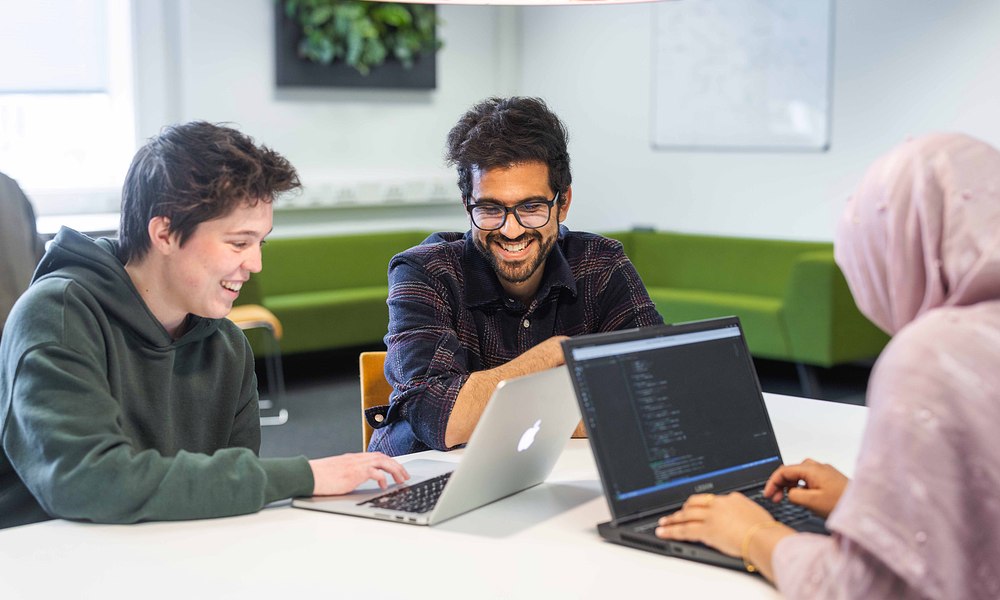Combine data science and life science and make a difference in the world
- Master
- Full-time
- 2 years
Combine data science and life science and make a difference in the world

Are you good at handling lots of data? Would you like to learn more programming techniques and apply them to bridge the gap between computer science and life sciences? After this master, you will possess the skills you need to facilitate and initiate innovations for life sciences, such as programming machine learning applications and managing data storage.
During your master’s, you will be involved in projects that combine working in research, education and industry. Through applied research you come up with innovative solutions for genuine societal issues. Below, you can find some examples of projects our master’s students engage in.
The Data Science for Life Sciences master programme is aimed at life science or IT students who want to learn how they can be part of the growing field of data science. After this master, you will possess the skills you need to facilitate and initiate innovations for the life science, such as programming machine learning applications and managing data storages. With this knowledge, you bridge the gap between life sciences and computer technology.
During this master, you will be combining life sciences with data science. You will learn how to use new data processing technologies, write algorithms - for instance to recognise sick cells - and analyse health-data. These skills will help you to contribute to better and more efficient healthcare and aid innovations in the life science industry. In short, you will develop into a data scientist who bridges the gap between domains of life science and technology. You will play an active role in ensuring that the data generated by the exponential growth in databases and medical databases is exploited to the full.
We train you to work as a professional data scientist, who is up to speed with new technologies and knows how and where to gather necessary information. The master is practice-based, so you will spend a lot of time programming and writing computer code, then directly applying your gathered knowledge. This master programme responds to a growing demand for data scientists and is the first master at a university of applied sciences in this field.

The master programme is divided into four semesters.
The first semesters of this programme focus on general skills in the field of data science, programming and life sciences. You will be introduced into the field and work through a project where you can directly apply what you have learnt. Besides these content-related subjects, you will also gain more professional and research skills.
The second and third semester are similar to the first. You build on the skills acquired and gradually progress on to more advanced programming and data science techniques. These semesters are also aimed at improving a wide range of skills, from content-related to more soft skills, which you will put into practice during large projects. In these projects, you can choose your own focus on a subject of your own interest.
In the last semester, you will undertake a graduation project within your specialisation. This final project is carried out independently and individually, usually at a company or research institute.
More details about the courses can be found in the Student Manual.
Check if you have a degree in one of the bachelor programmes mentioned above.
For more information, check this site.
Provide us with documented proof of knowledge and skills in the disciplines of programming, data science and biology and proof of your English proficiency.
For more information, check this site.
The admission committee of the Master Data Science for Life Sciences will check your application and your provided documents. You will receive their findings via e-mail, and they will let you know when you are accepted directly into the program or whether you need to follow an additional course.
For more information, check this site.
Once you have received a letter of acceptance, you can finalize make your application final by paying the tuition fees filling out your payment details in www.studielink.nl. To know how much you need to pay, check this site. Non EU/EER students will have to transfer a financial guarantee with which the tuition fee will be paid for.
For more information on immigration, housing, the welcome day and more, check this site.
Enrolment Advisor